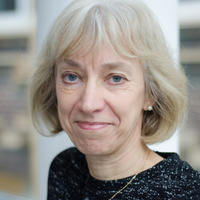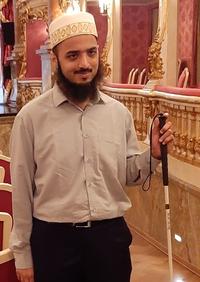Five Leverhulme Early Career Fellowships awarded to Oxford social scientists
Five highly prestigious Leverhulme Early Career Fellowships have been awarded to researchers across the Social Sciences Division in recognition of their research excellence and future potential. The Division achieved almost double the average number of the highly competitive Fellowships awarded to a University. The renowned scheme, which enables researchers to undertake a significant piece of publishable research, recognises those who have already demonstrated research excellence in their fields but who have not yet held a permanent academic post.

Professor Heather Viles, Associate Head of the Social Sciences Division (Research) said ‘I’m absolutely delighted that half of all our departments will be hosting a new cohort of Leverhulme Early Career Fellows for the coming three years. It is a credit to both the new Fellows’ records of research excellence, and to the supportive research environment at Oxford that will nurture their careers as they continue to produce social sciences research of the highest quality.’
Meet the 2023 Leverhulme Early Career Fellows:

|
Joseph Patrick McAulay, Centre for Socio-Legal Studies in the Faculty of Law 'Dangerous Spectacles: Conspiracy Theories, Crime, and the Law' I feel so incredibly honoured to have won a Leverhulme Early Career Fellowship award! My research project is going to look at the relationship between conspiracy theories, crime, and law in the United Kingdom, where I'll be using an innovative collection of digital and non-digital research methods to examine how conspiracy sub-cultures understand and navigate criminality. |

|
Dr. Kira Gartzou-Katsouyanni, Department of Politics and International Relations (DPIR) ‘Landholding inequality and the politics of place in advanced democracies’ As a Leverhulme Fellow, I will study how the distribution of land affects contemporary politics in advanced democracies. Landholding inequality is nearly absent in contemporary political economy scholarship on the Global North. Given the decline of the agricultural sector, it is implicitly assumed to no longer matter. Yet, the landholding distribution affects the local organisation of all sectors that use large areas of land as an input, influencing individuals’ employment and investment opportunities and shaping rural areas’ sense of place. Using a mixed-methods approach, I will develop and test a theory linking the landholding distribution in productive sectors and contemporary political preferences along the left-right and cosmopolitan-nationalist dimensions. |

|
Chloe Kattar, Department of Social Policy and Intervention My project examines the links between Islamophobia and right-wing thought. Right-wing groups around the world have displayed strong anti-Islam sentiment in recent years, which has been mostly commented by the press. My project seek to rethink this connection as a global rather than a Western phenomena, by offering the first historical account of the ways in which Islamophobia became a tenet of global conservatism in past decades. To do so, I focus on specific narratives that have originated in the Middle East, trace their migration and transformation across borders and show how right-wing commentators today have appropriated them online. |

|
Mathis Ebbinghaus, Department of Sociology I am excited to begin my Leverhulme Early Career Fellowship in the Department of Sociology, during which I will investigate far-right mobilisation in the United States. |

|
Dr Moiz Tundawala, Bonavero Institute of Human Rights, Faculty of Law, University of Oxford 'Legalizing Sovereignty in South Asian Constitutionalism' Modern constitutionalism which seeks to limit governmental authority has historically been in conflict with the idea of illimitable sovereign power. Yet new sovereign imaginaries of theocratic and aggressive nationalism today stake a claim to the political sphere not by having constitutions suspended but by translating their programmes in the language of constitutionalism itself. My research studies this global problem in the South Asian context. It investigates how, despite being hostile to the founding principles of civic-nationalism and liberal-secularism, the ethno-nationalist and socio-religious movements of Hindutva and Islamism have successfully instrumentalized constitutionalism to become politically powerful in postcolonial India and Pakistan. |


